VPNBook Review in USA 2024

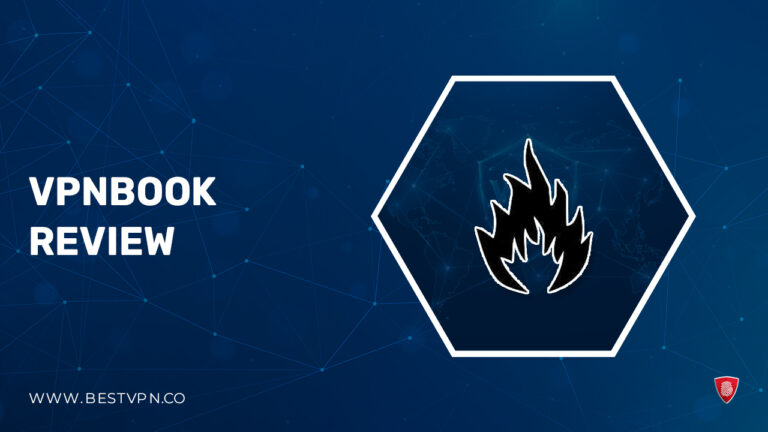
While the thought of a free VPN is pleasant, it is important to proceed with caution. To make the best VPN for USA selection process easier for you, I present a comprehensive VPNBook review in USA that discusses the merits and drawbacks of this VPN service.
VPNBook is a rather unknown VPN provider based in Switzerland, with a modest server network concentrated in Europe and America. Away from the 14 Eyes Alliance in USA, this European VPN offers a VPNBook free version alongside a paid version. The major difference between the two versions is the availability of dedicated IP addresses, among others.
It is unfair to deny that the VPNBook service has some positive aspects, such as a free version. At the same time, it is hard to ignore the limitations in speed, server network, and streaming capabilities.
It is always recommended for users to carefully evaluate their priorities and compare them with VPNBook alternative services. For instance, ExpressVPN comes as a highly reliable VPN, based on my research. However, you can still proceed with this VPNBook review to get an idea about this VPN’s services.
VPNBook Review in USA – Features and Specifications
Before getting ahead of myself, let me settle down and look at the features offered by VPNBook. This VPNBook review aims to make users aware of the specifications of this VPN, so let’s start.
| Features | Descriptions |
| Security Features | AES 128-bit and AES 256-bit |
| Privacy Policy | OpenVPN and PPTP |
| No-Logging Policy | No |
| Server Network | 6 Servers in 6 Countries |
| Speed and Performance | 81% drop on the USA server |
| Streaming | No |
| Torrenting | On Limited Servers |
| Device Compatibility | iOS, Windows, Android, Desktop |
| Customer Support | No |
| Price | Free of cost; premium version costs US$7.95 per month |
VPNBook Review in USA – Pros and Cons
When I tried this VPN, I found it painstakingly slow. It is not only difficult to use, it is also not secure. Take a look at the pros and cons to get the picture.
- VPNBook free service is available
- Allows torrenting on some servers
- Has a small server network, causing overcrowding
- Users experience slow speeds
- Struggles to unblock streaming services like Netflix
- Difficulty setting up and use
- Logs user data
Jurisdiction: Where is VPNBook Based?
VPNBook is based in Switzerland. This jurisdiction offers safe and stringent privacy laws that are known to keep it outside the direct influence of the 14-Eyes Alliance. However, everything else about VPNBook besides its location is unknown. VPNBook online information is unavailable regarding ownership, company structure, or operational details. This has led to a severe lack of transparency.
Security: What Security Does VPNBook Offer in USA?
The VPNBook security features are nothing to write home about. It manages to offer VPN connections through OpenVPN and employs secure AES encryption, but that is about it. During testing, instances of DNS leaks were observed, which tells me the chances of user privacy exposure through this site are high.
Encryption and Protocols
In terms of encryption, VPNBook supports and offers AES 128-bit and AES 256-bit encryption. Over time, both of these encryption protocols have become industry standards and are considered highly secure. Outside of the standard encryption, users are offered the following protocols:
| Protocol | Description |
| OpenVPN | Recommended method of connection |
| PPTP | Offers basic encryption |
| L2TP | Provides moderate security |
Kill Switch
A kill switch is a crucial security feature that should be included in all VPN services. A kill switch instantly terminates internet access if the VPN connection is unexpectedly dropped. Unfortunately, but not surprisingly, VPNBook lacks a kill switch. This unavailability of a kill switch makes you ponder, is VPNBook legit?
Privacy: How Much Privacy Does VPNBook Offer in USA?
To simply answer the question, not much. VPNBook claims to delete connection logs weekly. However, I experienced a different story. VPNBook falls short of secure measures like RAM-only servers that wipe data on every reboot. Although the service claims to log connection information to prevent abusive activities, the specific methods remain unclear.
There is a possibility that VPNBook sells data to advertisers, which would not be shocking as this practice is seen in some free VPNs. Moreover, VPNBook lacks an independent security audit, which weakens its position as a valid VPNBook proxy compared to premium VPNs like ExpressVPN.
No Logs Policy
On its website, VPNBook boasts about its privacy policy; it is far from being the best no log VPN in USA.
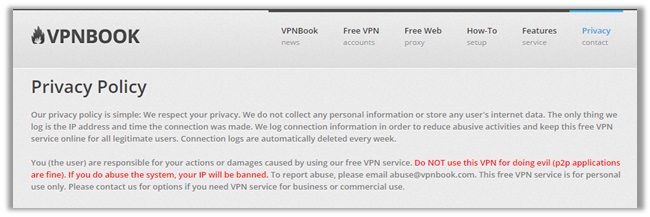
Even though VPNBook claims to have a no-logs policy, it is hard to confirm the fact due to a lack of independent audits. This raises doubts about the reliability and authenticity of this VPN logging policy in USA.
DNS and IP Leak Protection
I wanted to guarantee my DNS and IP leak protection whilst conducting a VPNBook Review. Unfortunately, I was met with disappointment. Despite the VPN connection, I experienced WebRTC IP address leaks and DNS leaks. It is not a good sign when connected to the VPN; a user still experiences an IP address and DNS server leak. This poses a significant privacy risk.
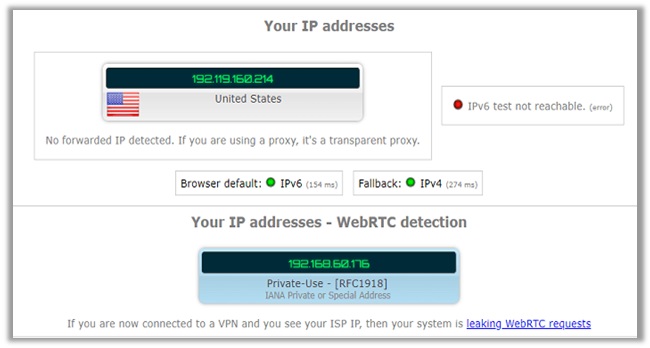
Server Network: Where are VPNBook’s Servers Located?
VPNBook server network is limited and only concentrated in Europe and America, with 6 servers in 6 countries. While it does offer some server coverage in the mentioned regions, the lack of server volume results in overcrowding and subsequent slower speeds during peak usage times.
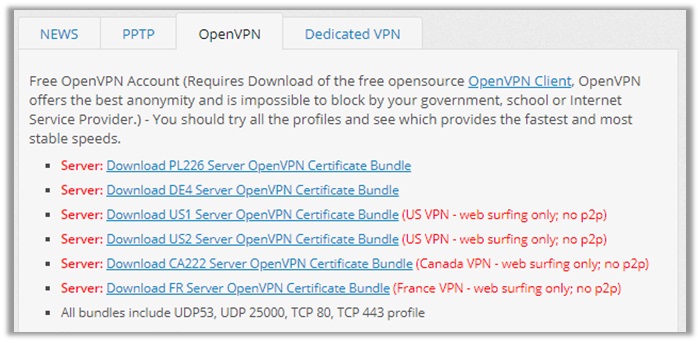
Moreover, VPNBook completely lacks any presence in areas like Africa, Pacific Asia, and South America. For users located far from these server locations, this limited geographical coverage makes it redundant, especially for unblocking purposes.
Speed and Performance: How Fast is VPNBook in USA?
It would not be a complete VPNBook Review unless I talk about VPNBook speed. As a free VPN, it was expected that VPNBook would not have a speedy performance comparable to its premium competitors. But just how slow it would be was a little surprising.
Users will experience an 81% drop in connection speeds in the US. To put things into perspective, ExpressVPN only drops the speed by 35%. This is a significant difference in speed reduction and will impact overall browsing and streaming experiences.
Lag during sessions was also noticeable due to these speed limitations. This made it nearly impossible to browse without interruptions and buffering, especially when attempting to stream content.
Streaming: How Is VPNBook For Streaming in USA?
Sadly, VPNBook falls short when it comes to unblocking streaming services. I found it struggling to bypass restrictions on popular streaming platforms, including Netflix, HBO Max, BBC iPlayer, Hulu, Amazon Prime Video, and Disney+. If accessing geo-restricted content is a priority for you, then VPNBook may not be the most suitable option.
I tried to use multiple services but it failed to work every time. This failure is primarily due to the limited server network and slower speeds. Furthermore, it lacks server presence in most regions, which restricts access to popular platforms like BBC iPlayer.
Torrenting: How is VPNBook for Torrenting in USA?
VPNBook may not be the best VPN for torrenting in USA, but it allows torrenting restricted to only two servers only. These servers are located in Germany and Poland. However, even on those servers, users have reported speed issues while torrenting. This could significantly affect download speeds and make it harder to torrent content at all.
Additionally, the absence of a kill switch makes it a pretty dangerous task. Torrenting without a secure safety blanket poses a security risk for users. If you insist upon using this VPN, make sure torrenting remains out of the equation if you value your online privacy.
Device Compatibility: What Devices Can I Use VPNBook on?
Setting up VPNBook can be quite challenging due to its manual configuration. This is particularly true for those who are not tech-savvy. This is because VPNBook lacks dedicated applications for devices, which makes it challenging for beginners to install and use VPNBook.
To use VPNBook, I had to download and install the OpenVPN app, OpenVPN Connect. The setup involved manually adding VPNBook configuration files for specific VPN locations and protocols. Not only was this time-consuming, it was also highly inconvenient.
Although I was able to finish the process, the setup might be intimidating for beginners. Given that, the instructions provided by VPNBook are outdated and no help, new users will be all on their own. If you are going into this VPN thinking it is the best VPN for Windows in USA, you are in for a rude awakening.
VPNBook on Windows
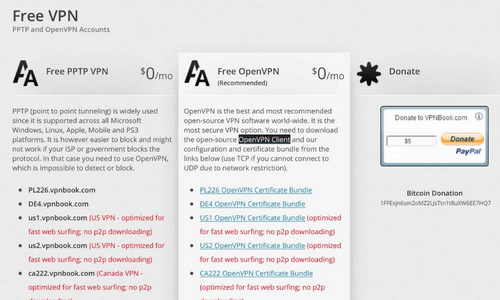
If you are a Windows user, this is how you can install VPNBook on your device:
- Visit the OpenVPN Connect official website and download the Windows version.
- Go to the VPNBook website and locate the OpenVPN configuration files for your preferred server locations.
- Follow the installation instructions for OpenVPN Connect on your Windows device.
- Launch OpenVPN Connect, click on Import or Add, and import the downloaded configuration files for VPNBook servers.
- Once configurations are added, select your desired server configuration within OpenVPN and establish the VPN connection.
VPNBook on Mac:
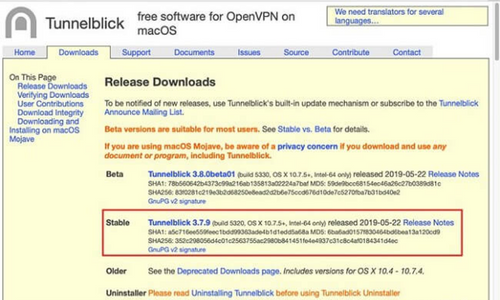
For Mac devices, follow the instructions to operate VPNBook on your computer:
- Visit the OpenVPN Connect official website and download the suitable software version for Mac.
- Access the VPNBook website and download the OpenVPN configuration files corresponding to your desired servers.
- Install the OpenVPN software on your Mac and import the downloaded configuration files into the OpenVPN app.
- Within the OpenVPN app, select the server configuration you wish to use and establish the VPN connection.
VPNBook on Android:
Following are the steps to download VPNBook for Android:
- Get the OpenVPN Connect app from the Google Play Store on your Android device.
- Visit VPNBook’s website and download the OpenVPN configuration files for your desired server locations.
- Install OpenVPN Connect on your Android device. Then, import the downloaded configuration files into the app.
- Select the desired server configuration within the OpenVPN app to establish the VPN connection.
VPNBook on iOS:
To download VPNBook for iPhone, follow the simple steps mentioned below:
- Obtain the OpenVPN Connect app from the App Store on your iOS device.
- Go to the VPN website to download the OpenVPN configuration files for the servers you want to use.
- Install the OpenVPN Connect on your iOS device to import the downloaded configuration files into the app.
- Choose the desired server configuration within the OpenVPN Connect app to initiate the VPN connection.
Customer Support: What Customer Support Does VPNBook Offer in USA?
The VPNBook customer support can use some serious pick-me-ups. Due to being a free VPN, it makes sense that customer service might be limited, but in reality, customer support is non-existent. The closest thing to customer support that VPNBook offers is its How-to section on the website.
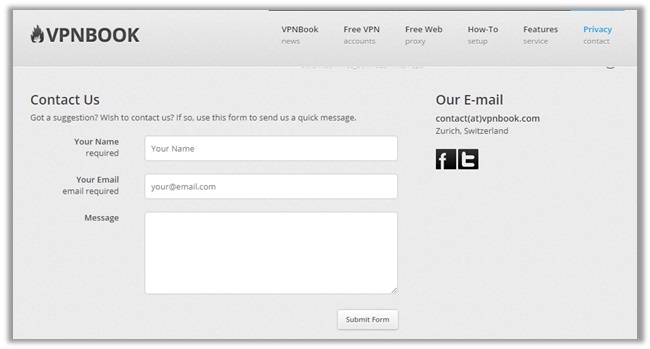
The section only provides abysmal setup guides for OpenVPN on different operating systems like Android, Ubuntu, Mac, and Windows. Everything else, including live chat, dedicated support channels, or timely responses, is unavailable on this service.
Pricing – How Much Does VPNBook Cost Exactly?
VPNBook is a completely free service. As such, you have no plans/subscriptions available. Users do not even have to sign up to use the VPN. If you click on the “Free VPN” tab, you will be redirected to the below page. Here, you have the ability to select the VPN protocol for connection.
You typically have two options: Free PPTP VPN and Free OpenVPN. Below each protocol, you have a list of servers available with info specifying if you can indulge in P2P or not. You have to load these servers in the OpenVPN GUI client. The username is VPNBook and the password is nv2bk56, which changes after every few weeks.
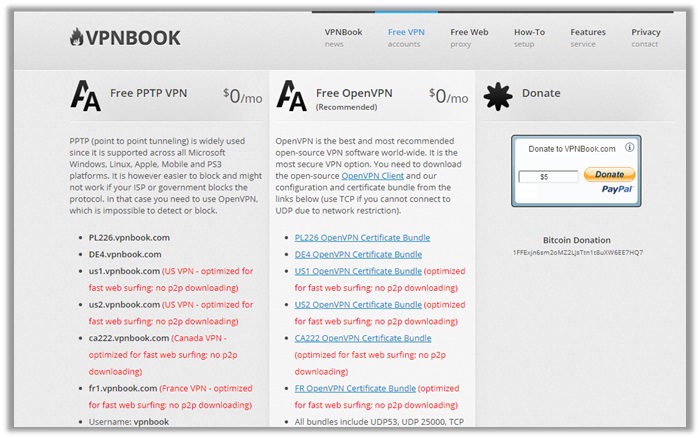
VPNBook Dedicated IP Pricing
While VPNBook does not impose any pricing for its PPTP and OpenVPN protocols, you do have to pay for their dedicated IPs. Not that the service has a huge listing of static IPs available.
However, the standard pricing is $7.95 per month for each static IP. Locations users have access to include Canada, US East/West, and the Netherlands for now!
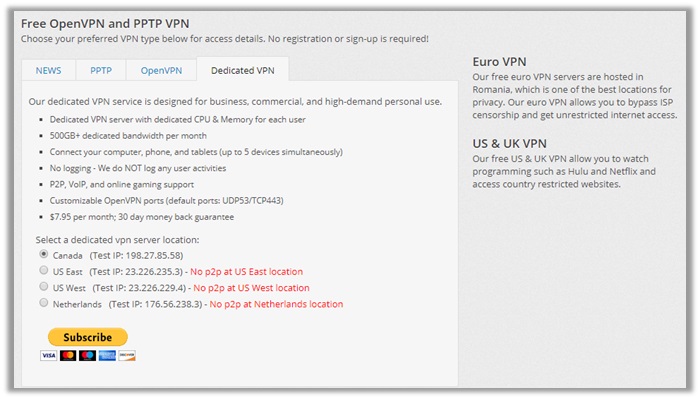
VPNBook Payment Methods
Using VPNBook is as simple as loading a particular server in the OpenVPN GUI client. However, if you opt for their dedicated servers, you will have to make a payment. The options available from VPNBook include Visa, MasterCard, Maestro, Discover, and American Express!
VPNBook Money Back Guarantee
I do appreciate VPNBook offering dedicated IPs, as not many in the marketplace do. Another plus point about their static IPs is that you can avail of a refund if the service is not up to the mark. Typically, you have 30 days until you can request your money back, which is quite reasonable!
Other VPN Reviews on BestVPN.co:
If you heed my advice and consider other VPN options, here are some services you start from:
- ExpressVPN is known for its speed, security features, and wide server network. To know more about the amazing features of this best VPN, read the ExpressVPN review USA.
- Surfshark offers affordable pricing along with unlimited simultaneous connections and strong security. More on that in Surfshark review USA.
- Private Internet Access (PIA) is known for its privacy features and customizable server options. Read the complete Private Internet Access review USA to learn more.
- TunnelBear not only offers a user-friendly interface and strong privacy features, but it also has a limited free plan option. You can read about that in the TunnelBear review USA.
- CyberGhost is a user-friendly application that offers specialized streaming servers and strong security features. Feel free to check out CyberGhost review USA.
FAQs – VPNBook Review in USA
Does VPNBook Work in China For American Users?
How secure is VPNBook in USA?
Is VPNBook Banned in India For American Users?
Bottom Line – Do I Recommend VPNBook?
At the end of my VPNBook review in USA, it is quite evident that I do not recommend it. While it does offer a free VPN service, it also lacks the necessary security features that make it reliable. The positive aspects, like supporting torrenting, get overshadowed by limitations in terms of server network, speed, security, and lack of comprehensive customer support.
The lack of all of these features makes VPNBook free less favorable compared to other VPN providers in the market. For users seeking security, reliable performance, and support should look for better options elsewhere, like ExpressVPN.

This vpn leaks your info just like you mentioned. The damage is already done though :/ wish id come across this sooner